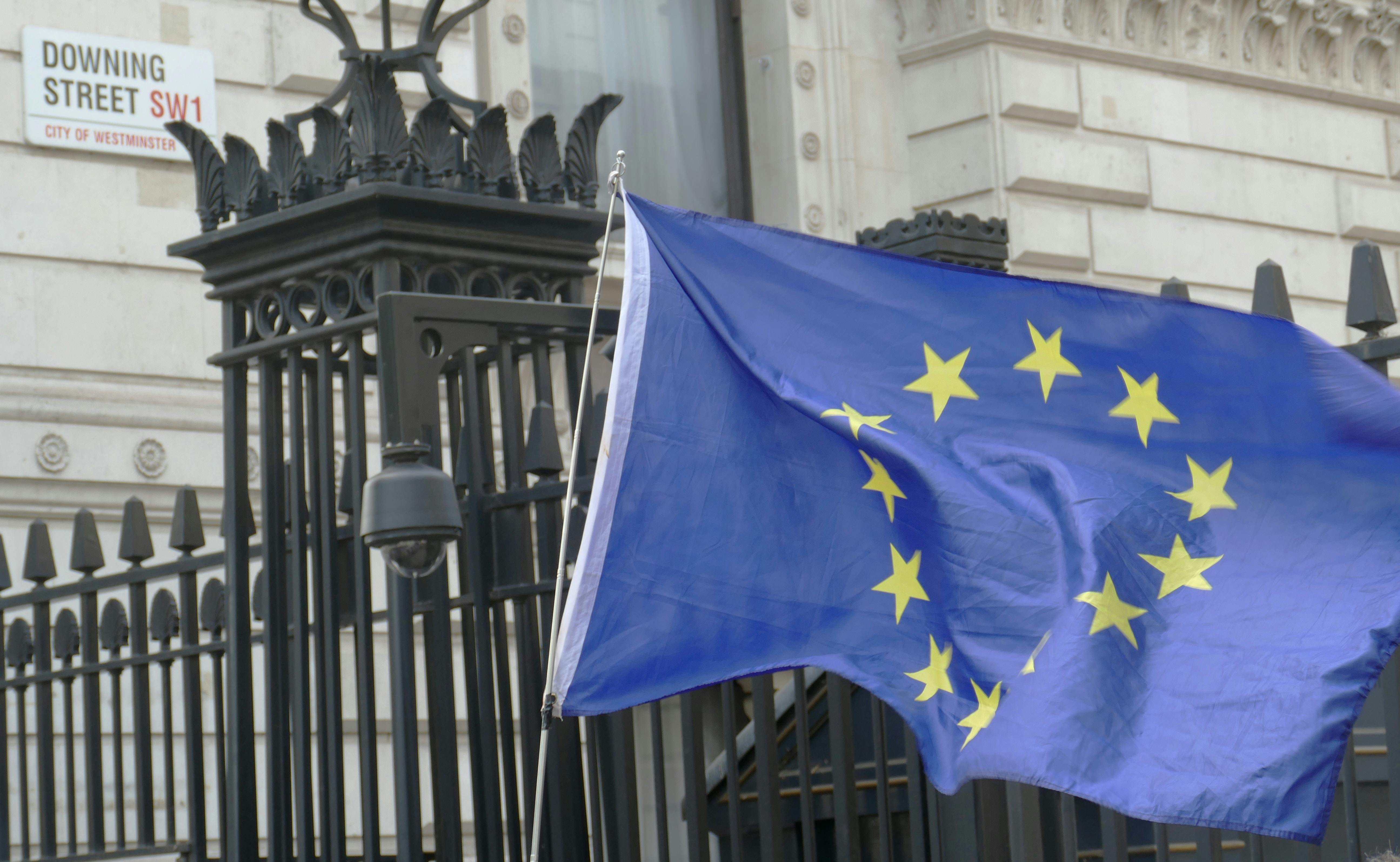
What will Brexit do to house prices?
Should I buy before Brexit? Should I sell before Brexit? The big questions answered by the experts at Nested.

Unless you’ve been living on Mars since June 2016, the chances are you’ll have heard a thing or two about Brexit. But don’t worry — this isn’t another piece about the backstop, fisheries policy and the price of prosecco. We’re here to answer the question every mover wants to know. What will Brexit do to house prices?
We should start by putting our cards on the table. If you want to read about hung parliaments, prorogation procedures, whips, majorities and filibusters, the Nested blog is not the nest for you. But we do hope to make the case that external events — Brexit or otherwise — shouldn’t distract you from what’s really important: planning your next move so that you and your loved ones have the right property for your needs.
How will Brexit affect house prices?
We don’t have a crystal Brexit ball, but in order to figure out the future, a good place to start is to assess how Brexit has affected house prices so far.
If we look at Land Registry figures, the average UK house price in June 2016 — the month of the EU Referendum — was £215,182. Fast forward three years to June 2019, and the figure had risen to £230,292. A slow, sluggish rise, like rising from a hangover after a 10-year party. When you factor in inflation, or more simply the increase in the cost of living, these paltry rises are closer to zero.
However, the UK-wide figures only provide a snapshot of what’s going on. It’s fair to say that the London property scene has cooled amid the political uncertainty. Between March 2018 and June 2019, ONS figures show that London house prices fell for 16 consecutive months — the biggest slowdown of any UK region.
In contrast, regional cities like Manchester and Birmingham have proven more resilient to the choppy Westminster waters, perhaps because those places have less exposure to EU trade than say, London and Northern Ireland.
Will house prices go down after Brexit?
We can’t tell you for certain if house prices will go down after Brexit. But here’s a thought: what if it doesn’t matter? Yes, if you’re moving out of London to a buoyant regional city, you might find that your money doesn’t go as far as it once did. But if you’re moving within the capital — or the interconnected south-east — it’s all relative.
Let’s take the worst-case scenario and imagine a ‘no deal’ Brexit, complete with a collapsing currency and house prices falling faster than a Tory majority. Your London abode might drop in value by 35% — as Bank of England chief Mark Carney once forewarned — but the same is probably true for the London (or Brighton, Cambridge or Canterbury) home you buy next.
As ever, what’s really important is your ability to make your mortgage repayments; though of course, if your job security depends intrinsically on the Brexit outcome, that’s another story (and other blog). This is not to downplay the significance of Brexit, but merely to observe that on a list of hypothetical Brexit worries, falling house prices are not necessarily cause for alarm.
What’s more, if you view a home as a long-term investment — and you know, a home — you should be insulated from the trials and tribulations of the external world beyond our control. Put it this way — if you buy a home with 10 or 20 years in mind then yes, the value may fluctuate in any given year, but over a long timespan, you stand a better chance of seeing a profit.
Should I wait until after Brexit to buy a house?
You might think it’s a good idea to see how Brexit affects house prices before dipping your toes into the market. On the face of it, riding out the storm is always better than crashing under the waves. But hold onto your hats, because buying in a downturn has its upsides too.
Anyone who viewed a house in London before 2016 could talk for England about the long queues, the estate agents who’d never call back, the bidding wars and properties that would vanish before you could even swipe right. A subdued property market means more time to view properties, less competition, and potentially, sellers who are open to offers.
Do you really want to wait around for external political events to run their course? By which point, the market could rebound, and rather than having the freedom to pick and choose your dream home, there’s twenty other buyers waiting to pounce.
It’s never a good idea to make any decisions in a panic. Rather than dwelling on abstract imponderables, think about the fundamental facts on the ground. Everyone’s situation is different, but by focusing on the things you can influence, you’ll sleep more easily.
Brexit could be a great opportunity for those upsizing
For some people, life circumstances can mean you have little option but to sell up. If you’re expecting a child, you’ll need more space than a studio flat can offer. If your children are a little older, they’ll probably want separate bedrooms. If you need to relocate for work, or to get your kids into a good local school, your hands might be tied.
If you really need to upsize, you might be worried that a sluggish market means it’s a terrible time to move. But contrary to what many people believe, moving in a downturn can mean more bang for your buck.
Put it this way: if prices fall 10%, your £300,000 home is now worth £270,000, but the £500,000 home you want to buy is now worth £450,000. In other words, the more valuable home sees a bigger price drop in relative cash terms — a £50,000 discount versus your £30,000 hit.
So in the so-called slump, you’re in a better buying position than you would be in a strong market. The corollary is that if you’re looking to downsize, you’ll get less bricks and mortar for your money when the market is subdued. But if space and location are your key considerations, now could be a great time to size-up a bargain.
Will house prices go up after Brexit?
A week is a long time in politics, so six months is an eternity. It’s anyone’s guess as to whether house prices will increase after Brexit, and it may depend on what type of Brexit outcome is achieved (a negotiated withdrawal, a ‘no deal’ scenario, or even Britain remaining in the EU).
Accountants KPMG predict that if the UK leaves with a deal, house prices will rise by 1.3% in 2020. However, in a ‘no deal’ outcome, KPMG estimates that prices would fall between 5.4% and 7.5%, and doesn’t rule out that house prices will crash after Brexit by as much as 20%.
Under ‘no deal’, London would see the biggest house price falls across the UK, with the exception of Northern Ireland. There is little research into what would happen in the event that Britain revokes Article 50 and remains in the EU; though ultimately, political certainty and consumer confidence underpin a strong sales market.
Where does Nested stand? We’re sitting firmly on the picket fence and seeing this one out. But whatever the future may bring, your best strategy is to base your house hunting decisions on facts, not fears, and make a decision that’s right for you and yours.
Want expert advice and opinion on the housing market to your inbox? Subscribe now.
Nested puts homeowners in control of their sale. Our agents provide you with smarter insights so you achieve the best price for your home on your timeframe. When you’ve found your new home, you have the power to move chain free, while we take care of your sale. Our buying agent will even negotiate up to 5% saving on your new home, so you get more home for your money.
If you’re interested in selling smarter, get in touch today. Nested.com - The modern way to move.